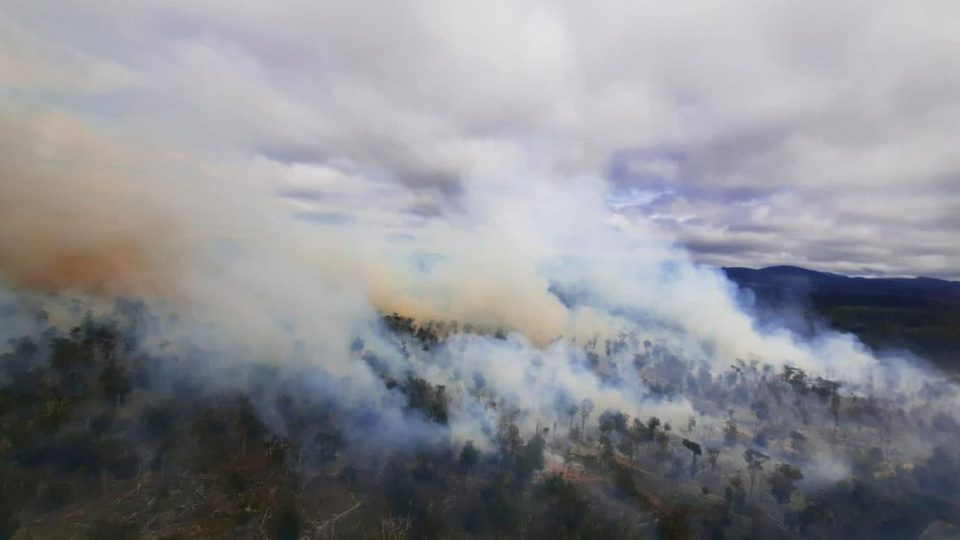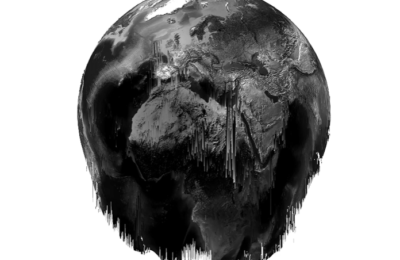From Chile Today.
Wildfires are razing native forests and peatlands in Tierra del Fuego
Devastating wildfires are raging in Chile’s Tierra del Fuego. They threaten crucial global ecosystems and the habitat of the indigenous Selk’nam population. So far the state has responded slowly, and the situation could still worsen.
The Selk’nam Community Organization in Chile (COVADONGA ONA) issued an urgent call for assistance in protecting ancestral lands.
On Jan. 25, wildfires broke out in the Timaukel area of Tierra del Fuego. The fires have since burned through more than 250ha of woodland, destroying large areas of local peatlands and threatening the Karukinka Natural Park.
Park representatives, including the director of the The Wildlife Conservation Society in Chile (WCS), who manage the park, have called for more help in tackling the fires — beyond what has been pledged so far by the government and by National Forest Corporation Conaf.
Meanwhile, the Selk’nam Community Organization — whose ancestral lands are burning — are doing what they have been doing every day since the fires began: highlighting this emergency and seeking help in stemming the flames.
Also read:
The Selk’nam group maintain that government agencies were slow to recognize the urgency of the situation. Others on social media have also critiqued the resources and equipment being made available to fire fighting crews. Emergency agency Onemi issued only a yellow alert when it became clear the Karukinka Park was under threat. Only on Jan. 28 was it raised to a red alert.
Tackling the flames is further complicated by local geography. The availability of water-pumping machinery is limited which means fire trucks have to travel long distances to access water — in turn generating significant fuel expenses which have so far largely cost the municipality of Timaukel.
The costs of delay and inaction are great. Not only locally, where the natural beauty of Karukinka is at risk, but also globally.
This is because the peatlands that are currently burning form a unique ecosystem with a quality that benefits the whole world: they are significant carbon sinks.
Peatlands cover only around 3 percent of the world’s surface but, when they are healthy and moist, they store more carbon than all the Earth’s forests. When peatlands like those in Tierra del Fuego burn, they not only release carbon into the atmosphere, they also lose their ability to absorb and store carbon and thus their ability to help limit the worsening of global climate change.
This is something that the governor of Magallanes, Jorge Flies, has highlighted in recent months. In August last year, Magallanes became the first region in Chile to declare a Climate Emergency. And Tierra del Fuego plays vital roles in tackling that emergency. The world’s most southerly concentration of peatlands are located on the island, storing gigatonnes of carbon accumulated over more than 18,000 years. Tierra del Fuego’s peatlands are also home to species that are not found anywhere else. Protecting these lands is vital for protecting biodiversity.
Increase in forest fires
The events in Tierra del Fuego come at a time when the frequency and scale of wildfires around the world are increasing due to climate change. Recent fires elsewhere in South America have been particularly intense. In the first week of January, more than 300,000ha in Argentina were affected, along with 20,000ha in Uruguay and 9,000ha in Chile’s Araucanía region, some 700km south of Santiago.
Although the scale of the current fires in Timaukel appears relatively small, the affected forests are mainly made up of native trees, meaning a devastating loss of old-growth and diverse woodlands. The extent of the fire could yet increase rapidly due to increasingly unpredictable weather events.
These forests and peatlands also form part of sacred territories in Chile of the Selk’nam indigenous community.
For centuries, the Selk’nam people have suffered violence and marginalization at the hands of the state and people protected by the state. Today, the Selk’nam Community Organization continue their fight for legal recognition in Chile — connecting with more than 800 Selk’nam descendants to maintain shared cultural, artistic, spiritual, territorial, and linguistic connections. Their struggle is of universal concern, since injustice anywhere is a threat to justice everywhere. At a time when the whole world faces ever-worsening wildfires, their territorial struggle takes on new significance. It is vital that Selk’nam efforts in Chile to protect Tierra del Fuego receive all the support they need.




